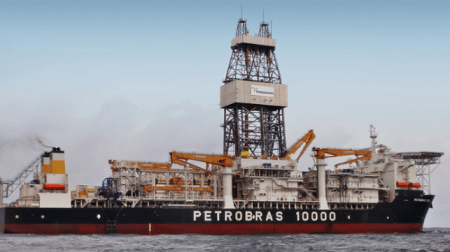Lula Aide Signals It’s Okay For Petrobras To Pursue Amazon Drilling
There isn’t a discrepancy in Brazil’s efforts to advance the energy transition and its state oil company Petrobras pursuing drilling in domestic frontier areas, the chief of staff of Brazilian President Luiz Inacio Lula da Silva said on Wednesday.
Petrobras is looking to drill for oil and gas in the Amazon region.
On the other hand, Brazil under Lula wants to accelerate the energy transition, but it needs money to do that.
“There is no contradiction. You indicate where you want to get and then you`ll need resources for that,” Lula’s chief of staff Rui Costa said in a radio interview carried by Reuters.
“We are going to build a sustainable, renewable energy matrix, but it`s obvious that we need to fund that transition process,” Costa added.
Brazil’s environmental protection agency, Ibama, refused to grant approval for a controversial offshore oil project led by Petrobras. The company was preparing to drill a well in the Foz do Amazonas area in the so-called Equatorial Margin where the Amazon River meets the Atlantic.
The block in the Foz do Amazonas basin, off Brazil’s northern coast, is close to the mouth of the Amazon River, which prompted the environmentalist protest that eventually led to the regulator’s decision.
The Brazilian agency based its decision, which was celebrated by environmentalists, on “a function of a group of technical inconsistencies.”
Petrobras already operates several blocks in the area, which, according to Brazil’s oil and gas regulator, has a similar geology to the Guyana-Suriname Basin, where several massive discoveries have been made in recent years.
Petrobras has appealed the decision of the environmental protection agency.
Earlier this year, Petrobras’ chief executive officer Jean Paul Prates said that even as the company boosts investment in clean energy over time, oil production would remain the top priority for the Brazilian state oil giant.
Photo: Petrobras file image.
| Themes |
| • Access to natural resources • Climate change • Destruction of habitat • Energy • Environment (Sustainable) • Indigenous peoples • Public policies • Public programs and budgets |














